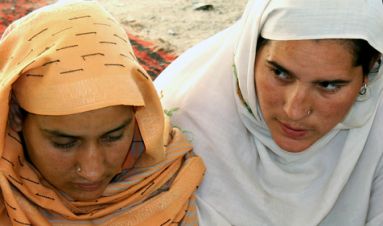Photo credit: Aftab Ahmed/Saferworld
Inclusive justice
Justice institutions like courts provide an outlet for marginalised people to pursue grievances or cases and have them addressed. If they are inaccessible or are seen as corrupt or inefficient, people may turn to violence as a solution to their problems.
In many communities in Pakistan, formal justice is not readily available yet. Instead, most people tend to rely on informal justice providers, such as jirgas – or tribal councils – which lack oversight and are generally not recognised by the government. They also do little to address the grievances of marginalised groups, and can reinforce divisions and marginalisation by failing to meet the justice needs of vulnerable people.
We work with justice providers who are semi-formal – they are recognised by the government and tend to follow state law – on issues affecting women, young people and marginalised groups. We help these justice services become more accountable and fair by establishing a shared set of principles to serve the needs of all. We make recommendations on how justice providers can work together with the formal courts to help communities understand their rights and the correct processes for resolving disputes.
We reach out to local communities, to raise awareness of justice mechanisms through campaigns, community consultations and practical action – such as the creation of help desks.
We support communities in working with civil society groups, justice providers and government authorities to improve the provision of justice. This helps people to understand their own rights and the avenues through which they can address disputes in a non-violent way.
 Case study
Case study